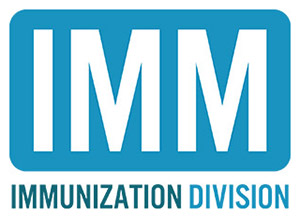
- Immunization Home
- ImmPRINT
- Immunization Quality Improvement for Providers (IQIP)
- Vaccines for Children Program
- Case Counts
- Measles Disease
- Outreach and Education
- Vaccine Information
- School Entry Survey
- Immunization Resources
- Alabama Adolescent And Adult Vaccination Task Force
- Data Requests
- Contact Us
Perinatal Hepatitis B Program
Perinatal Hepatitis B Infection In Infants Is Preventable
Pregnant women with hepatitis B virus (HBV) infection poses a serious risk to their infants. Without postexposure immunoprophylaxis (hepatitis B immune globulin (HBIG) and hepatitis b vaccine) within 12 hours of birth, completion of 3 doses of hepatitis b vaccine, and post serology vaccine testing, approximately 40% of infants will develop chronic HBV infection and approximately 25% of those infants will eventually die from chronic liver disease or liver cancer.
National Association of City and County Health Officer
Current reports show that there are gaps and lost opportunities that need to be addressed in order to eliminate perinatal transmission of HBV. The updated regimen has been shown to be 95% effective in preventing perinatal infection. Please see A Call to Action for eliminating mother-to-child transmission of HBV in the U.S. for more information in eliminating mother-to-child transmission of HBV.
CDC Perinatal Hepatitis B Guidelines
- Universal testing of HBsAg for all pregnant women for each pregnancy
- Follow all HBsAg + mothers and their infants
- Ensure all infants receive monovalent hepatitis B vaccine within 24 hours of birth (birth dose) regardless of the mother's HBsAg status
- Monovalent HepB vaccine should be administered within 24 hours of birth for medically stable infants weighing > 2,000 grams born to HBsAg-negative mothers. The recommendations for vaccination of infants < 2,000 grams (as well as infants born to HBsAg-positive mothers or mothers whose hepatitis B status is unknow) remain unchagned.
- Preterm infants weighing < 2,000 g born to HBsAg-negative mothers should receive the first odse of vaccine 1 months after birth or at hospital discharge.
- Ensure the infant receives a dose of HBIG within 12 hours of birth for those whose mother's are HBsAg positive
- Ensure infants receive 3 doses of hepatitis vaccine at 0 (birth dose), 1-2 months for second dose (minimum of 8 weeks after second dose). The third dose of hepatitis B vaccine is a minimum of 8 weeks after the second dose, at least 16 weeks after first dose, and for infants, at least 24 weeks of age
- After receipt of 3 doses hepatitis B vaccine, complete post serology vaccine testing (HBsAg & anti-HBs) for infants 1 to 2 months after completion of the vaccine series and at least 9 months of age
Alabama Perinatal Hepatitis B Program
Perinatal Hepatitis B Coordinators serve public and private HBsAg+ mothers and their infants throughout Alabama. They provide the following services at no charge to the patient or provider:
- Patient education and counseling for HBsAg+ mother, her infant, household and sexual contacts
- Notification of the birth hospital to ensure HBIG and hepatitis B vaccine are available for the infant within 12 hours of birth.
- Notification to infant's medical provider about birth and the hepatitis B vaccination schedule.
- Follow-up of the infant to ensure the hepatitis B vaccine series is completed and the infant is tested for immunity to HBV to ensure protection.
Perinatal Hepatitis B Program Coordinator
For referral and case management of HBsAg-positive maternity patients, complete VPD REPORT Card, contact the State Perinatal Hepatitis B Coordinator, Fu Zhao by emailing the [email protected] or by calling 1-800-469-4599.
CDC and Immunization Action Coalition Resources
- Prenatal Care Provider Policies and Procedures to Prevent Perinatal Hepatitis B Virus Transmission
- Delivery Hospital Policies and Procedures to Prevent Perinatal Hepatitis B Virus Transmission
- Guidelines for Developing Admission Orders in Labor & Delivery & Newborn Units to Prevent Hepatitis B Virus Transmission
- Algorithm Illustrating Prenatal Care Provider Testing Procedures
- Update: Shortened Interval for Postvaccination Serologic Testing of Infants Born to Hepatitis B-Infected Mothers (MMWR October 9, 2015)
- Protect Your Baby for Life
- Hepatitis B Immunization Management of Preterm Infants
- Campaign Materials
- Help stop the spread of hepatitis B virus (HBV) by improving the identification of HBV-infected pregnant women
Page last updated: October 7, 2025




